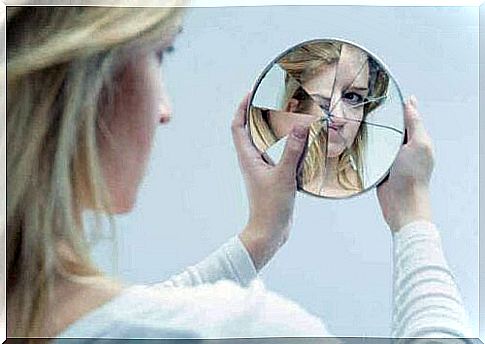Discover What Self-concept Consists Of

Knowing what self-concept is can help you gain better self-esteem and make more assertive decisions in your life. When we talk about self-concept, we refer to the image we have of ourselves. In the article below, we will tell you more about what self-concept consists of.
Of course, this image is not formed by itself, but is a product of the most important interactions we have developed in life, among other factors.
Self-concept also includes the perception we have of our abilities. This is why this is gradually becoming more organized.
For social psychology, this concept is very important, just as it is for humanistic psychologists. In fact, experts in the field point out that self-concept is a crucial concept for the development of our personality.
In the same way , it means that we have a positive self-concept, so that we can have good social, professional and personal function. Are you interested in knowing more about it? In the following sections we will provide more information.
What is self-concept?
Self-concept is the set of feelings, images and thoughts we have about ourselves. Thus, we distinguish between the evaluative component (emotions) and the cognitive component (thoughts).
Thoughts refer to the belief we have about ourselves, and include body image, values, social identity, skills or other qualities we consider ourselves to have.
Sometimes we refer to the evaluative component as self-esteem, which is a composition of the emotions, positive or negative, that we experience about ourselves.

The main schools
As is the case with many other concepts, there are many schools that have tried to approach this notion of self-concept. For example, for Henri Tajfel, the self-concept consists of personal and social identity, according to his theory of social identity.
When he mentions social identity, he is talking about the groups we are part of, such as religion, family, university or others.
And personal identity is reserved for our own personality traits, the ones that make us unique from other people.
Some authors have made a historical review of the various schools that have addressed the issue of self-concept and have classified them as follows:
- Symbolic interactionism : Prioritizes the social dimension, that is, the image each person has based on his or her relationship with others.
- Social learning : Emphasizes observable behavior, values self-reinforcement.
- Behaviorism : Emphasizes more on the environment and observable behavior.
- Cognitivism : Assess that the self-concept is part of a structure that drives the individual to achieve his goals.
- Psychoanalysis : Studies the self-concept around the concepts ego, superego and id.
- Phenomenology : Studies the processes of perception, and what each subject internalizes.
In addition to these schools, there are also other methods that approach the study of the self-concept in a different way. Therefore, it is today possible to find out that this concept is composed of several factors.
Factors for self-concept
Depending on the school or author, the factors for self-concept may vary. From the position of the humanistic psychologist, Carl Rogers, the self-concept consists of three factors, which are as follows.
1. What self-concept consists of: Self-image
In general, it answers the question “Who am I?”, And the answers may depend on social roles or personal characteristics.
Self-esteem can be affected by friends, peers or parents, as well as other like-minded people. Media can also play a role.
It is necessary to remember that the image you have of yourself does not always coincide with reality. They are the ones who have a high self-esteem and think they are better than others.
However, there is probably a tendency to have a negative self-image in these cases, which causes weaknesses or deficiencies to be exaggerated.

2. What self-concept consists of: Self-esteem
This indicator refers to how much value we place on ourselves and involves a degree of evaluation. The result can be positive or negative. There are several factors that affect our self-esteem. Argyle thought of four:
- The reaction of others
- Comparison with others
- Social roles
- Identification
3. What self-concept consists of: The ideal self
The ideal self refers to how we want to be. Sometimes the way we look at ourselves and how we want to see ourselves do not coincide.
Although self-concept can be maintained over time – or is stable – it does not mean that it can not be changed. It is actually possible to change that.
As we have observed, self-concept and self-esteem are related. By working with our self-concept, we can have high self-esteem. In any case, if we have low self-esteem, it would be best to consult a psychologist.









